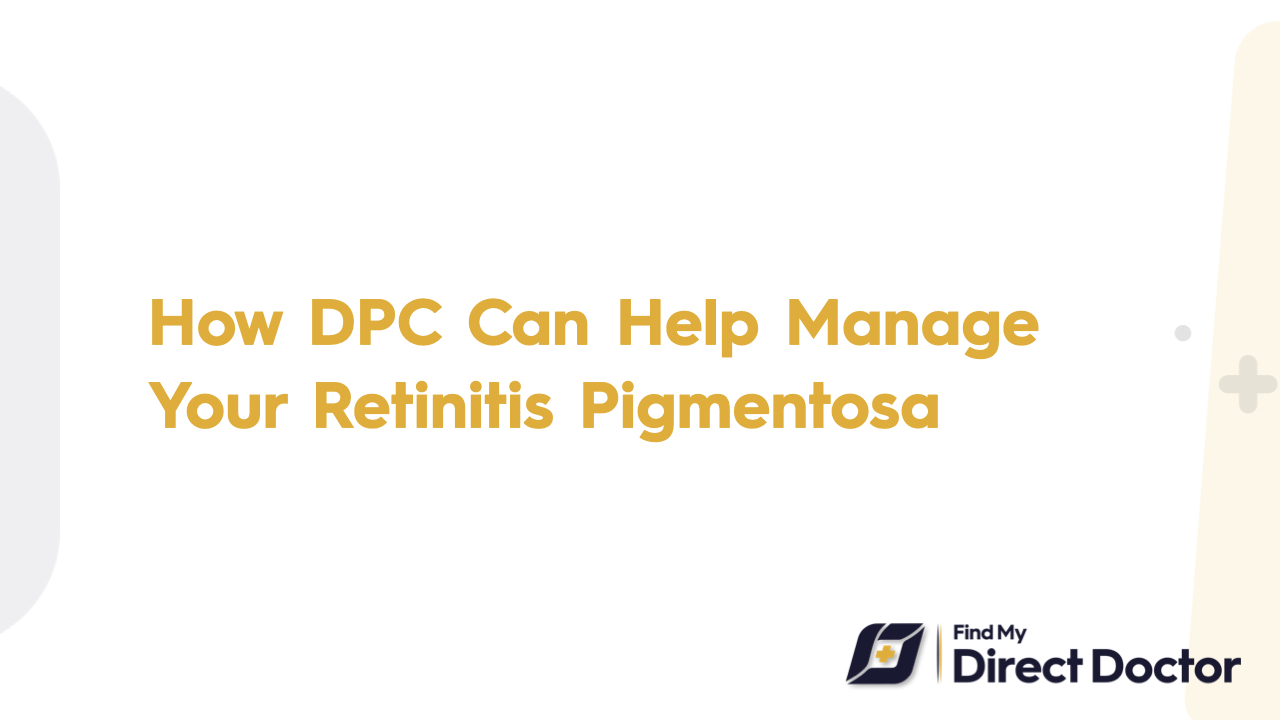



A collection of hereditary conditions known as retinal pigmentosa (RP) gradually harm the retina, which is the area of the eye that provides vision. It frequently starts with night blindness, which makes it hard to see in low light. As the illness worsens, peripheral vision gradually deteriorates and can eventually lead to tunnel vision. Color vision problems and a gradual deterioration in eyesight are possible symptoms, however they might vary. Central vision may also be impacted as RP progresses, and in extreme circumstances, total blindness may result.

By offering individualized and consistent care, Direct Primary Care (DPC) can be quite helpful in the management of retinitis pigmentosa. To guarantee prompt treatments or interventions, DPC providers can keep an eye on the condition's development and work with eye specialists. Effective management of RP depends on routine examinations, referrals, and follow-up appointments. Patients can be informed and supported throughout their treatment path since DPC provides convenient access to healthcare providers without the inconvenience of lengthy wait times.
The opportunity to obtain ongoing, individualized therapy is the main advantage of DPC for those with retinitis pigmentosa. More regular visits are made possible by DPC, which is crucial for tracking the disease's gradual progression and modifying treatment regimens as needed. Having a committed medical staff that is aware of their unique needs and is able to provide prompt guidance helps patients feel less stressed and uncertain. Additionally, DPC helps you build a closer bond with your physician, which promotes improved communication and a more thorough approach to RP management.
The treatment of retinitis pigmentosa is very customized in a DPC model. In order to develop a care plan that is specific to each patient's disease stage and general health, providers collaborate closely with patients. DPC guarantees that patients with RP receive the best care possible by means of regular monitoring, early interventions, and continuous support. In addition to treating RP symptoms, this strategy stresses lifestyle modifications and preventative actions to preserve the best possible quality of life while the illness worsens.
Previous Post